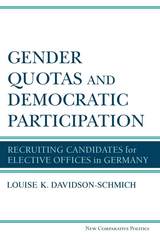

How does a country reconstitute itself as a functioning democracy after a period of dictatorship? The new community may execute, imprison, or temporarily disenfranchise some citizens, but it will be unable to exclude all who supported the fallen regime. Political reconciliation must lay the groundwork for political trust. Democracy offers the compromised--and many who were more than just compromised--a second chance.
In this new book, Anne Sa'adah explores twentieth-century Germany's second chances. Drawing on evidence from intellectual debates, trials, literary works, controversies about the actions of public figures, and partisan competition, Sa'adah analyzes German responses to the problem of reconciliation after 1945 and again after 1989. She depicts the frustrations, moral and political ambiguities, and disappointments inherent to even successful processes of democratization. She constantly underscores the difficult trade-off between achieving a modicum of justice and securing the legitimacy and stability of the new regime. A strategy of reconciliation emphasizing outward conformity to democratic norms and behavior, she argues, has a greater chance of sustaining a new and fragile democracy than do more direct attempts to punish past misdeeds and alter people's inner convictions.

A new Germany has come of age, as democratic, sophisticated, affluent, and modern as any other western nation. This remarkable transition in little more than a generation is the central theme of Germany Transformed. Here all the old stereotypes and conclusions are challenged and new research is marshalled to provide a model for an advanced democratic republic.
Kendall Baker, Russell Dalton, and Kai Hildebrandt, working with massive national election returns from 1953 onward, explain the Old Politics of the postwar period, which was based on the “economic miracle” and the security needs of West Germany, and the shift in the past decade to the New Politics, which emphasizes affluence, leisure, the quality of life, and international accommodation. But more than elections are examined. Rather, the authors delineate the transvaluation of the German civic culture as democracy became embedded in the nation’s institutions, political ways, party structures, and citizen interest in governance. By the 1970s the quiescent German of Prussia, the Empire, and the 1930s had become the active and aware democratic westerner.
This is among the most important books about West Germany written since the late 1950s, when the nation, devastated by war and rebuilding its economy and political life, was still struggling with the possibilities of democracy. It is a political history, recounted in enormous detail and with methodological precision, that will change perceptions about Germany and align them with realities. Germany is now an integrated part of a democratic western community of nations, and an understanding of its true condition not only illuminates better the staunch European identity but also is bound to have an impact on American policy.

Contributors. Kendall L. Baker, Karl H. Cerny, David P. Conradt, Arthur B. Gunlicks, Alice McGillivray, Peter H. Merkl, Ferdinand Muller-Rommel, Helmut Norpoth, Richard M. Scammon, Donald Schoonmaker, Christian Soe

This is a book about their paradoxical situation and about the dilemmas all advocates of change face when they become powerful enough to negotiate with the status quo. The critical essays by German social scientists and activists also provide a detailed picture of the dynamics of the German Greens -- where their support has come from, the nature of the competing factions, and the place of feminism. The editors provide a substantial introduction.
The flavor and texture of the Greens -- including their raucous public arguments and their innovative campaign tactics -- are suggested by the political posters included in the book and by a whole section of primary documents.
The documents and the essays (except for one originally written in English) have been translated from the German. The result is to make available to English-speaking readers a view of a complex movement whose very name and color have become synonymous with social action in favor of the environment and the empowerment of people.
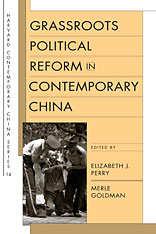
Observers often note the glaring contrast between China's stunning economic progress and stalled political reforms. Although sustained growth in GNP has not brought democratization at the national level, this does not mean that the Chinese political system has remained unchanged. At the grassroots level, a number of important reforms have been implemented in the last two decades.
This volume, written by scholars who have undertaken substantial fieldwork in China, explores a range of grassroots efforts--initiated by the state and society alike--intended to restrain arbitrary and corrupt official behavior and enhance the accountability of local authorities. Topics include village and township elections, fiscal reforms, legal aid, media supervision, informal associations, and popular protests. While the authors offer varying assessments of the larger significance of these developments, their case studies point to a more dynamic Chinese political system than is often acknowledged. When placed in historical context--as in the Introduction--we see that reforms in local governance are hardly a new feature of Chinese political statecraft and that the future of these experiments is anything but certain.

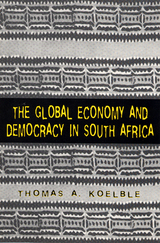
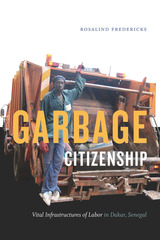
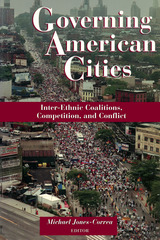
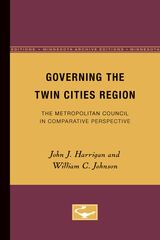

Of all the major cities of Britain, London, the world metropolis, was the last to acquire a modern municipal government. Its antiquated administrative system led to repeated crises as the population doubled within a few decades and reached more than two million in the 1840s. Essential services such as sanitation, water supply, street paving and lighting, relief of the poor, and maintenance of the peace were managed by the vestries of ninety-odd parishes or precincts plus divers ad hoc authorities or commissions. In 1855, with the establishment of the Metropolitan Board of Works, the groundwork began to be laid for a rational municipal government.
David Owen tells in absorbing detail the story of the operations of the Metropolitan Board of Works, its political and other problems, and its limited but significant accomplishments—including the laying down of 83 miles of sewers and the building of the Thames Embankments—before it was replaced in 1889 by the London County Council. His account, based on extensive archival research, is balanced, judicious, lucid, often witty, and always urbane.

Contributors. Dirk Bönker, Jeff Bowersox, David Ciarlo, Sebastian Conrad, Christian S. Davis, Geoff Eley, Jennifer Jenkins, Birthe Kundus, Klaus Mühlhahn, Bradley Naranch, Deborah Neill, Heike Schmidt, J. P. Short, George Steinmetz, Dennis Sweeney, Brett M. Van Hoesen, Andrew Zimmerman

German Colonialism Revisited brings together military historians, art historians, literary scholars, cultural theorists, and linguists to address a range of issues surrounding colonized African, Asian, and Oceanic people’s creative reactions to and interactions with German colonialism. This scholarship sheds new light on local power dynamics; agency; and economic, cultural, and social networks that preceded and, as some now argue, ultimately structured German colonial rule. Going beyond issues of resistance, these essays present colonialism as a shared event from which both the colonized and the colonizers emerged changed.
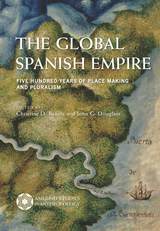
The Spanish Empire was a complex web of places and peoples. Through an expansive range of essays that look at Africa, the Americas, Asia, the Caribbean, and the Pacific, this volume brings a broad range of regions into conversation. The contributors focus on nuanced, comparative exploration of the processes and practices of creating, maintaining, and transforming cultural place making within pluralistic Spanish colonial communities.
The Global Spanish Empire argues that patterned variability is necessary in reconstructing Indigenous cultural persistence in colonial settings. The volume’s eleven case studies include regions often neglected in the archaeology of Spanish colonialism. The time span under investigation is extensive as well, transcending the entirety of the Spanish Empire, from early impacts in West Africa to Texas during the 1800s. The contributors examine the making of a social place within a social or physical landscape. They discuss the appearance of hybrid material culture, the incorporation of foreign goods into local material traditions, the continuation of local traditions, and archaeological evidence of opportunistic social climbing. In some cases, these changes in material culture are ways to maintain aspects of traditional culture rather than signifiers of new cultural practices.
The Global Spanish Empire tackles broad questions about Indigenous cultural persistence, pluralism, and place making using a global comparative perspective grounded in the shared experience of Spanish colonialism.
Contributors
Stephen Acabado
Grace Barretto-Tesoro
James M. Bayman
Christine D. Beaule
Christopher R. DeCorse
Boyd M. Dixon
John G. Douglass
William R. Fowler
Martin Gibbs
Corinne L. Hofman
Hannah G. Hoover
Stacie M. King
Kevin Lane
Laura Matthew
Sandra Montón-Subías
Natalia Moragas Segura
Michelle M. Pigott
Christopher B. Rodning
David Roe
Roberto Valcárcel Rojas
Steve A. Tomka
Jorge Ulloa Hung
Juliet Wiersema
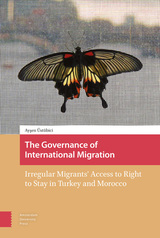
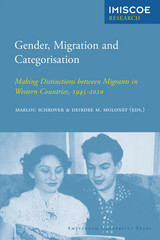

A telling look at today’s “reverse” migration of white, middle-class expats from north to south, through the lens of one South American city
Even as the “migration crisis” from the Global South to the Global North rages on, another, lower-key and yet important migration has been gathering pace in recent years—that of mostly white, middle-class people moving in the opposite direction. Gringolandia is that rare book to consider this phenomenon in all its complexity.
Matthew Hayes focuses on North Americans relocating to Cuenca, Ecuador, the country’s third-largest city and a UNESCO World Heritage Site. Many began relocating there after the 2008 economic crisis. Most are self-professed “economic refugees” who sought offshore retirement, affordable medical care, and/or a lower–cost location. Others, however, sought adventure marked by relocation to an unfamiliar cultural environment and to experience personal growth through travel, illustrative of contemporary cultures of aging. These life projects are often motivated by a desire to escape economic and political conditions in North America.
Regardless of their individual motivations, Hayes argues, such North–South migrants remain embedded in unequal and unfair global social relations. He explores the repercussions on the host country—from rising prices for land and rent to the reproduction of colonial patterns of domination and subordination. In Ecuador, heritage preservation and tourism development reflect the interests and culture of European-descendent landowning elites, who have most to benefit from the new North–South migration. In the process, they participate in transnational gentrification that marginalizes popular traditions and nonwhite mestizo and indigenous informal workers. The contrast between the migration experiences of North Americans in Ecuador and those of Ecuadorians or others from such regions of the Global South in North America and Europe demonstrates that, in fact, what we face is not so much a global “migration crisis” but a crisis of global social justice.
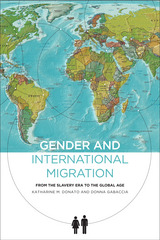
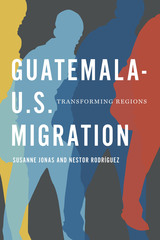
Guatemala-U.S. Migration: Transforming Regions is a pioneering, comprehensive, and multifaceted study of Guatemalan migration to the United States from the late 1970s to the present. It analyzes this migration in a regional context including Guatemala, Mexico, and the United States. This book illuminates the perilous passage through Mexico for Guatemalan migrants, as well as their settlement in various U.S. venues. Moreover, it builds on existing theoretical frameworks and breaks new ground by analyzing the construction and transformations of this migration region and transregional dimensions of migration.
Seamlessly blending multiple sociological perspectives, this book addresses the experiences of both Maya and ladino Guatemalan migrants, incorporating gendered as well as ethnic and class dimensions of migration. It spans the most violent years of the civil war and the postwar years in Guatemala, hence including both refugees and labor migrants. The demographic chapter delineates five phases of Guatemalan migration to the United States since the late 1970s, with immigrants experiencing both inclusion and exclusion very dramatically during the most recent phase, in the early twenty-first century. This book also features an innovative study of Guatemalan migrant rights organizing in the United States and transregionally in Guatemala/Central America and Mexico. The two contrasting in-depth case studies of Guatemalan communities in Houston and San Francisco elaborate in vibrant detail the everyday experiences and evolving stories of the immigrants’ lives.
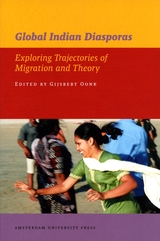

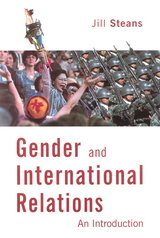
Until relatively recently, little had been written about gender issues in international relations despite the increased importance of the study of gender in other areas of the social sciences. Gender and International Relations fills that gap, providing a clear and accessible guide to the study of gender issues, feminist theories, and international relations. Steans illustrates how gender is central to nationalisms and political identity, the state, citizenship and conceptions of political community, security, and global political economy and development. Drawing on feminist scholarship from across the social sciences, she demonstrates the uses of feminism as critique. She also introduces readers to contemporary theoretical debates in international relations using concrete concerns and easily understandable issues to ground the discussion.
The book does not construct a single feminist theory of international relations nor does it advance a particular perspective of how gender can best be understood in an international or global context. Rather, the book argues that feminist theories have collectively produced insights crucial to the study of international relations and that these insights can be used to challenge conventional approaches to the discipline.

Until relatively recently, little had been written about gender issues in international relations despite the increased importance of the study of gender in other areas of the social sciences. Gender and International Relations fills that gap, providing a clear and accessible guide to the study of gender issues, feminist theories, and international relations. Steans illustrates how gender is central to nationalisms and political identity, the state, citizenship and conceptions of political community, security, and global political economy and development. Drawing on feminist scholarship from across the social sciences, she demonstrates the uses of feminism as critique. She also introduces readers to contemporary theoretical debates in international relations using concrete concerns and easily understandable issues to ground the discussion.
The book does not construct a single feminist theory of international relations nor does it advance a particular perspective of how gender can best be understood in an international or global context. Rather, the book argues that feminist theories have collectively produced insights crucial to the study of international relations and that these insights can be used to challenge conventional approaches to the discipline.
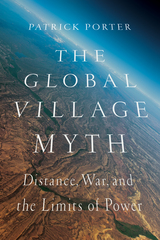
According to security elites, revolutions in information, transport, and weapons technologies have shrunk the world, leaving the United States and its allies more vulnerable than ever to violent threats like terrorism or cyberwar. As a result, they practice responses driven by fear: theories of falling dominoes, hysteria in place of sober debate, and an embrace of preemptive war to tame a chaotic world.
Patrick Porter challenges these ideas. In The Global Village Myth, he disputes globalism's claims and the outcomes that so often waste blood and treasure in the pursuit of an unattainable "total" security. Porter reexamines the notion of the endangered global village by examining Al-Qaeda's global guerilla movement, military tensions in the Taiwan Strait, and drones and cyberwar, two technologies often used by globalists to support their views. His critique exposes the folly of disastrous wars and the loss of civil liberties resulting from the globalist enterprise. Showing that technology expands rather than shrinks strategic space, Porter offers an alternative outlook to lead policymakers toward more sensible responses—and a wiser, more sustainable grand strategy.

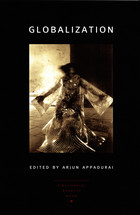
Seeking an alternative to the dead-end debate between those who see globalization as a phenomenon wholly without precedent and those who see it simply as modernization, imperialism, or global capitalism with a new face, the contributors seek to illuminate how space and time are transforming each other in special ways in the present era. They examine how this complex transformation involves changes in the situation of the nation, the state, and the city. While exploring distinct regions—China, Africa, South America, Europe—and representing different disciplines and genres—anthropology, literature, political science, sociology, music, cinema, photography—the contributors are concerned with both the political economy of location and the locations in which political economies are produced and transformed. A special strength of the collection is its concern with emergent styles of subjectivity, citizenship, and mobilization and with the transformations of state power through which market rationalities are distributed and embodied locally.
Contributors. Arjun Appadurai, Jean François Bayart, Jérôme Bindé, Néstor García Canclini, Leo Ching, Steven Feld, Ralf D. Hotchkiss, Wu Hung, Andreas Huyssen, Boubacar Touré Mandémory, Achille Mbembe, Philipe Rekacewicz, Saskia Sassen, Fatu Kande Senghor, Seteney Shami, Anna Tsing, Zhang Zhen

As the world transitions from an industrial society to an information society, agriculture has undergone a dramatic transformation. Food production in the twentieth century was transformed by three revolutions: first mechanical, then genetic, and finally chemical. Now, in the twenty-first century, agriculture is going through at least two more revolutions: an information technology revolution leading to precision farming, and a biotechnology revolution leading to genetically engineered crops.
Organized by Harvard University’s David Rockefeller Center for Latin American Studies with the collaboration of the Scientific Committee for Problems of the Environment, this interdisciplinary volume examines the impact of a variety of new technological, social, and economic trends on the rural environment.
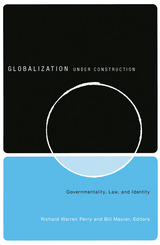
A kaleidoscopic look at the intersections of globalization and governance
The future outlines of the new global order are the constant object of speculation—economic, political, and metaphysical. From the sunny new world proclaimed by global free marketers to the rebellion against globalization unleashed in the streets of Seattle and Genoa, to the doomsdays envisioned by transnational terrorists and counterterrorists alike, this emerging global-millennial epoch is foretold alternately as redemption or apocalypse. The authors consider these sweeping descriptions of humankind’s future, as well as the discourses of globalization that filter and frame them, from perspectives in anthropology, geography, law, sociology, and cultural studies. Their goal is not to resolve the ultimate semantic or philosophical question of what “globalization” really is; instead, their essays explore the forms, practices, and effects of governmentality integral to global modernity’s architecture.
In Globalization under Construction, the authors ask: What are the rationalities of government implicit in global modernity’s project of mobilizing space, time, and difference? And what difference does it make to the globalization debates to put those rationalities in the foreground of critical analysis? Altogether, their work attempts to discern in the disparateness of contemporary events an emerging pattern of governmentality, techniques of governance and assemblages of intersecting arguments about the history of the present and the nature of the future that our present portends.Contributors: Kitty Calavita, U of California, Irvine; Rosemary J. Coombe, York U; Susan Bibler Coutin, U of California, Irvine; Karen Leonard, U of California, Irvine; Sally Engle Merry, Wellesley College; Aihwa Ong, U of California, Berkeley; Susan Roberts, U of Kentucky; Lisa Sanchez, U of California, San Diego; Liliana Suárez-Navaz, Autónoma U, Madrid.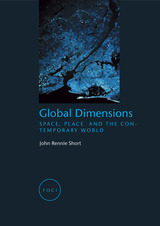
John Rennie Short disagrees with this interpretation, arguing that the world today actually thrives on local differences and that a global polity tends to reinforce – not repress – the power of individual nation-states. He insists that globalization is not so much replacing difference with sameness as providing opportunities for new interactions between spaces and locations, new connections between the global and the local, new social landscapes and more diversity rather than less.
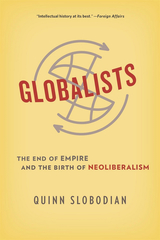
George Louis Beer Prize Winner
Wallace K. Ferguson Prize Finalist
A Marginal Revolution Book of the Year
“A groundbreaking contribution…Intellectual history at its best.”
—Stephen Wertheim, Foreign Affairs
Neoliberals hate the state. Or do they? In the first intellectual history of neoliberal globalism, Quinn Slobodian follows a group of thinkers from the ashes of the Habsburg Empire to the creation of the World Trade Organization to show that neoliberalism emerged less to shrink government and abolish regulations than to redeploy them at a global level. It was a project that changed the world, but was also undermined time and again by the relentless change and social injustice that accompanied it.
“Slobodian’s lucidly written intellectual history traces the ideas of a group of Western thinkers who sought to create, against a backdrop of anarchy, globally applicable economic rules. Their attempt, it turns out, succeeded all too well.”
—Pankaj Mishra, Bloomberg Opinion
“Fascinating, innovative…Slobodian has underlined the profound conservatism of the first generation of neoliberals and their fundamental hostility to democracy.”
—Adam Tooze, Dissent
“The definitive history of neoliberalism as a political project.”
—Boston Review
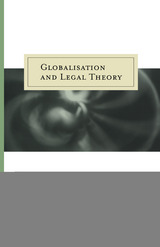

Global Interdependence provides a new account of world history from the end of World War II to the present, an era when transnational communities began to challenge the long domination of the nation-state. In this single-volume survey, leading scholars elucidate the political, economic, cultural, and environmental forces that have shaped the planet in the past sixty years.
Offering fresh insight into international politics since 1945, Wilfried Loth examines how miscalculations by both the United States and Soviet Union brought about a Cold War conflict that was not necessarily inevitable. Thomas Zeiler explains how American free-market principles spurred the creation of an entirely new economic order—a global system in which goods and money flowed across national borders at an unprecedented rate, fueling growth for some nations while also creating inequalities in large parts of the Middle East, Latin America, and Africa. From an environmental viewpoint, John McNeill and Peter Engelke contend that humanity has entered a new epoch, the Anthropocene era, in which massive industrialization and population growth have become the most powerful influences upon global ecology. Petra Goedde analyzes how globalization has impacted indigenous cultures and questions the extent to which a generic culture has erased distinctiveness and authenticity. She shows how, paradoxically, the more cultures blended, the more diversified they became as well.
Combining these different perspectives, volume editor Akira Iriye presents a model of transnational historiography in which individuals and groups enter history not primarily as citizens of a country but as migrants, tourists, artists, and missionaries—actors who create networks that transcend traditional geopolitical boundaries.
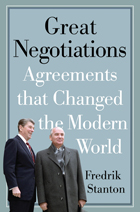
Lessons in Diplomacy from Colonial America to the Cold War
"In a time when negotiations, both great and small, continue to shape our world, this book provides an excellent opportunity to learn from the past and understand the present.”—Kofi Annan, Nobel Peace Prize Winner and former Secretary General of the United Nations
“A thought-provoking, informative book, highly recommended for all readers interested in international affairs.”—Library Journal
“For anyone with an interest in diplomacy and political history, Stanton's book is both entertaining and informative.” —Foreign Policy Watch
“Every professional concerned with dispute resolution and every student of negotiation has much to learn from Fredrik Stanton's lively stories of eight history-shaping negotiations.”—Robert H. Mnookin, Chair Program on Negotiation, Harvard Law School
“An excellent introduction into some of the great triumphs and failures of modern diplomacy.”—Seattle Post-Intelligencer
“An interesting, informative study well worth reading and pondering.” —American Diplomacy
“Stanton deftly illustrates that the power of haggling can easily rival that of any army or warhead.”—Roll Call
“Exhaustive research and careful thought have enabled Stanton to employ an extraordinary writing talent to produce a contribution to history and a source of enjoyable reading.”—New York Law Journal
“Stanton brings back to life both famous and some long forgotten personalities in the history of major American, European, and Asian negotiations. He persuasively makes his case for the importance of negotiators and negotiations both when wars can be kept from beginning and when wars end. He weaves in deft descriptions of the personal strengths and foibles of negotiators and homes in on the ability of the best to improvise when maneuvering on unfamiliar terrain.” —Ambassador Richard W. Murphy, Council on Foreign Relations
Words as much as weapons have shaped the course of history. Whether to avert, resolve, assist, or secure the outcome of a conflict, diplomacy in the modern age has had great triumphs and bitter failures, from the Cuban Missile Crisis in 1962, which narrowly spared humanity from a nuclear Armageddon, to the Treaty of Versailles after World War I, which created problems that still confront us today. Drawing on primary sources, transcripts, and interviews, Great Negotiations: Agreements that Changed the Modern World tells the stories of eight key episodes in modern diplomacy. From Benjamin Franklin securing crucial French support for the American revolution to Reagan and Gorbachev laying the groundwork to eliminate an entire class of nuclear weapons, Fredrik Stanton explains what each party brought to the negotiating table, the stakes, the obstacles to success, and how they were overcome.

American foreign policy is the subject of extensive debate. Many look to domestic factors as the driving forces of bad policies. Benjamin Miller instead seeks to account for changes in US international strategy by developing a theory of grand strategy that captures the key security approaches available to US decision-makers in times of war and peace.
Grand Strategy from Truman to Trump makes a crucial contribution to our understanding of competing grand strategies that accounts for objectives and means of security policy. Miller puts forward a model that is widely applicable, based on empirical evidence from post-WWII to today, and shows that external factors—rather than internal concerns—are the most determinative.

By combining these different analyses, Greenland in Arctic Security provides new, theoretically informed discussions on how security politics can manifest across different scales and territorial borders. At times, these politics can have consequences beyond their original intent. With Greenland geopolitics and securitization theory of current interest to political and academic debates, this book offers timely insights for readers.
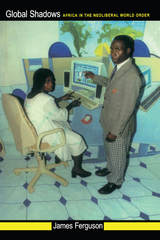
In Global Shadows the renowned anthropologist James Ferguson moves beyond the traditional anthropological focus on local communities to explore more general questions about Africa and its place in the contemporary world. Ferguson develops his argument through a series of provocative essays which open—as he shows they must—into interrogations of globalization, modernity, worldwide inequality, and social justice. He maintains that Africans in a variety of social and geographical locations increasingly seek to make claims of membership within a global community, claims that contest the marginalization that has so far been the principal fruit of “globalization” for Africa. Ferguson contends that such claims demand new understandings of the global, centered less on transnational flows and images of unfettered connection than on the social relations that selectively constitute global society and on the rights and obligations that characterize it.
Ferguson points out that anthropologists and others who have refused the category of Africa as empirically problematic have, in their devotion to particularity, allowed themselves to remain bystanders in the broader conversations about Africa. In Global Shadows, he urges fellow scholars into the arena, encouraging them to find a way to speak beyond the academy about Africa’s position within an egregiously imbalanced world order.

In The Good Project, Monika Krause dives into the intricacies of the decision-making process at NGOs and uncovers a basic truth: It may be the case that relief agencies try to help people but, in practical terms, the main focus of their work is to produce projects. Agencies sell projects to key institutional donors, and in the process the project and its beneficiaries become commodities. In an effort to guarantee a successful project, organizations are incentivized to help those who are easy to help, while those who are hardest to help often receive no assistance at all. The poorest of the world are made to compete against each other to become projects—and in exchange they offer legitimacy to aid agencies and donor governments. Sure to be controversial, The Good Project offers a provocative new perspective on how NGOs succeed and fail on a local and global level.

The book reviews the major theoretical approaches to regional cooperation including perspectives from international relations, political economy, economics and sociology. It is divided into three main sections: theoretical approaches to regionalism; issues of regional cooperation (such as security, monetary issues, identity and integration); and an exploration of specific case studies including the Middle East, Africa, the Americas, China, Europe, Asia and the Pacific.
With an international range of contributors, including Bjorn Hettne, Louise Fawcett and Andrew Hurrell, this in-depth and multi-disciplinary guide will be of interest to students across the social sciences and to the wider policy community.

The optimism that arrived at the end of the cold war and marked the turn of the Millennium was shattered by September 11. In the aftermath of that event it is not unwarranted pessimism that lines the pages of Grave New World, it is unavoidable reality. Terrorism is but one aspect of many other wider concerns for national and international security, and the contributors to this volume not only warn us, but reward us as well with the clarity of their views into—and possible solutions for—a difficult, complicated future. They speak convincingly of the numerous military and non-military challenges that create security problems—whether those are interstate, intrastate, or transnational—many of which are being dangerously overlooked in public policy debates.
The challenges and complexities might seem insurmountable but the first step in solving problems is recognizing that they exist. Grave New World provides an eye-opening assessment of the prospects for peace and security in the 21st century.
Michael E. Brown frames these issues in his Introduction, "Security Challenges in the 21st Century;" and in his summation, "Security Problems and Security Policy in a Grave New World."

The story of the intrepid young women who volunteered to help and entertain American servicemen fighting overseas, from World War I through the wars in Afghanistan and Iraq.
The emotional toll of war can be as debilitating to soldiers as hunger, disease, and injury. Beginning in World War I, in an effort to boost soldiers’ morale and remind them of the stakes of victory, the American military formalized a recreation program that sent respectable young women and famous entertainers overseas.
Kara Dixon Vuic builds her narrative around the young women from across the United States, many of whom had never traveled far from home, who volunteered to serve in one of the nation’s most brutal work environments. From the “Lassies” in France and mini-skirted coeds in Vietnam to Marlene Dietrich and Marilyn Monroe, Vuic provides a fascinating glimpse into wartime gender roles and the tensions that continue to complicate American women’s involvement in the military arena. The recreation-program volunteers heightened the passions of troops but also domesticated everyday life on the bases. Their presence mobilized support for the war back home, while exporting American culture abroad. Carefully recruited and selected as symbols of conventional femininity, these adventurous young women saw in the theater of war a bridge between public service and private ambition.
This story of the women who talked and listened, danced and sang, adds an intimate chapter to the history of war and its ties to life in peacetime.


Until now there has been no summary or overview of the wide range of work contributing to critical legal studies, the movement that has aroused such a furor in the communities of law and political philosophy. This book outlines and evaluates the principal strands of critical legal studies, and achieves much more as well.
A good deal of the writing in critical legal studies has been devoted to laying bare the contradictions in liberal thought. There have been attacks and counterattacks on the liberal position and on the more conservative law and economics position. Now Mark Kelman demonstrates that any critique of law and economics is inextricably tied to a broader critique of liberalism.
There are three central contradictions in liberal thought: between a commitment to mechanically applicable rules and to standards that fluctuate with situations; between intrinsic individual values and the objective knowledge of ethical truths; and between free will and determinism. Kelman shows us the pervasiveness of these contradictions in legal doctrine; their connection to broader political theory and to visions of human nature; and, finally, the degree to which mainstream thought tends to privilege certain of these commitments over others.
The author also analyzes two of the most significant components of jurisprudence today the law and economics discipline and the legal process school. He concludes with a lively discussion of the role of law generally and of “cognitive legitimation,” or the ways in which legal thought can make the unnecessary, the contingent, and the unjust seem natural, inevitable, and fair.
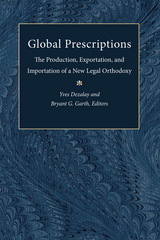
Comprised of two sections, the volume first develops theoretical perspectives key to an understanding of the production and impact of new "global legal prescriptions." The second part shifts attention to the national importation of these legal orthodoxies. The scholars provide a diverse set of sophisticated approaches, both to the circumstances promoting the production of these prescriptions and to the limitations of the prescriptions in the different national settings. Thus, Global Prescriptions provides a unique treatment for readers interested in globalization generally or the potential spread of the "rule of law" in particular.
This volume will intrigue scholars and students interested in a political science, economics, history, anthropology, law, and sociology.
Contributors are Jeremy Adelman, Robert Boyer, Elizabeth Heger Boyle, Miguel Angel Centeno, Heinz Klug, Larissa Adler Lomnitz, John W. Meyer, Setsuo Miyazawa, Hiroshi Otsuka, Rodrigo Salazar, Kathryn Sikkink, Anne-Marie Slaughter, and Catalina Smulovitz.
Yves Dezalay is Director of Research, National Center for Scientific Research, Paris. Bryant G. Garth is Director of the American Bar Foundation.


The front pages of our newspapers and the lead stories on the evening news bear witness to the divorce of law from justice. The rich and famous get away with murder; Fortune 500 corporations operate sweatshops with impunity; blue-chip energy companies that spoil the environment and sicken communities face mere fines that don't dent profits. In The Gift of Science, a bold, revisionist account of 300 years of jurisprudence, Roger Berkowitz looks beyond these headlines to explore the historical and philosophical roots of our current legal and ethical crisis.
Moving from the scientific revolution to the nineteenth-century rise of legal codes, Berkowitz tells the story of how lawyers and philosophers invented legal science to preserve law's claim to moral authority. The "gift" of science, however, proved bittersweet. Instead of strengthening the bond between law and justice, the subordination of law to science transformed law from an ethical order into a tool for social and economic ends. Drawing on major figures from the traditions of law, philosophy, and history, The Gift of Science is not only a mesmerizing and original intellectual history of law; it shows how modern law remains imprisoned by a failed scientific metaphysics.
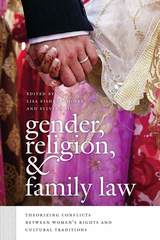
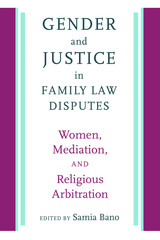

A society’s traditions and culture, Alexander argues, have a much greater effect on property rights. Laws must aim, then, to change cultural ideas of property, rather than deem whether one has the right to own it. Ultimately, Alexander builds a strong case for improving American takings law by borrowing features from the laws of other countries—particularly those laws based on the idea that owning property not only confers rights, but also entails responsibilities to society as a whole.

The international community has made great progress in improving global health. But staggering health inequalities between rich and poor still remain, raising fundamental questions of social justice. In a book that systematically defines the burgeoning field of global health law, Lawrence Gostin drives home the need for effective global governance for health and offers a blueprint for reform, based on the principle that the opportunity to live a healthy life is a basic human right.
Gostin shows how critical it is for institutions and international agreements to focus not only on illness but also on the essential conditions that enable people to stay healthy throughout their lifespan: nutrition, clean water, mosquito control, and tobacco reduction. Policies that shape agriculture, trade, and the environment have long-term impacts on health, and Gostin proposes major reforms of global health institutions and governments to ensure better coordination, more transparency, and accountability. He illustrates the power of global health law with case studies on AIDS, influenza, tobacco, and health worker migration.
Today's pressing health needs worldwide are a problem not only for the medical profession but also for all concerned citizens. Designed with the beginning student, advanced researcher, and informed public in mind, Global Health Law will be a foundational resource for teaching, advocacy, and public discourse in global health.

2004 — A Choice Outstanding Academic Book
International law has become the key arena for protecting the global environment. Since the 1970s, literally hundreds of international treaties, protocols, conventions, and rules under customary law have been enacted to deal with such problems as global warming, biodiversity loss, and toxic pollution. Proponents of the legal approach to environmental protection have already achieved significant successes in such areas as saving endangered species, reducing pollution, and cleaning up whole regions, but skeptics point to ongoing environmental degradation to argue that international law is an ineffective tool for protecting the global environment.
In this book, Joseph DiMento reviews the record of international efforts to use law to make our planet more livable. He looks at how law has been used successfully—often in highly innovative ways—to influence the environmental actions of governments, multinational corporations, and individuals. And he also assesses the failures of international law in order to make policy recommendations that could increase the effectiveness of environmental law. He concludes that a "supranational model" is not the preferred way to influence the actions of sovereign nations and that international environmental law has been and must continue to be a laboratory to test approaches to lawmaking and implementation for the global community.


After the siege ended at Wounded Knee, the real battle had yet to be fought. The 1973 standoff in South Dakota between Oglala Lakota Indians and federal lawmen led to the criminal prosecution of American Indian Movement leaders Dennis Banks and Russell Means. The ten-month trial had all the earmarks of a political tribunal; with the defense led by William Kunstler and the prosecution backed by the Nixon administration, it became a media battle for public opinion.
This first book-length study of the Wounded Knee trials demonstrates the impact that legal institutions and the media have on political dissent. It also shows how the dissenters as defendants can influence these institutions and the surrounding political and cultural climate. AIM and its attorneys successfully turned the courtroom into a political forum on the history of U.S.-Indian relations but were often frustrated in telling their story by the need to observe legal procedures--and by the media's stereotyping them as Indian warriors or sixties militants. John Sayer draws on court records, news reports, and interviews with participants to show how the defense, and ultimately the prosecution, had to respond continually to legal constraints, media coverage, and political events taking place outside the courtroom.
Although Banks and Means and most of the other protesters were acquitted, Sayer notes that the confinement of AIM protests to the courtroom robbed the movement of considerable momentum. Ghost Dancing the Law shows how legal proceedings can effectively quell dissent and represents both a critical chapter in the struggle of Native Americans and an important milestone at the crossroads of law and politics.
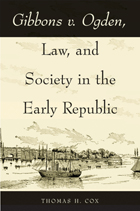
Gibbons v. Ogden, Law, and Society in the Early Republic examines a landmark decision in American jurisprudence, the first Supreme Court case to deal with the thorny legal issue of interstate commerce.
Decided in 1824, Gibbons v. Ogden arose out of litigation between owners of rival steamboat lines over passenger and freight routes between the neighboring states of New York and New Jersey. But what began as a local dispute over the right to ferry the paying public from the New Jersey shore to New York City soon found its way into John Marshall’s court and constitutional history. The case is consistently ranked as one of the twenty most significant Supreme Court decisions and is still taught in constitutional law courses, cited in state and federal cases, and quoted in articles on constitutional, business, and technological history.
Gibbons v. Ogden initially attracted enormous public attention because it involved the development of a new and sensational form of technology. To early Americans, steamboats were floating symbols of progress—cheaper and quicker transportation that could bring goods to market and refinement to the backcountry. A product of the rough-and-tumble world of nascent capitalism and legal innovation, the case became a landmark decision that established the supremacy of federal regulation of interstate trade, curtailed states’ rights, and promoted a national market economy. The case has been invoked by prohibitionists, New Dealers, civil rights activists, and social conservatives alike in debates over federal regulation of issues ranging from labor standards to gun control. This lively study fills in the social and political context in which the case was decided—the colorful and fascinating personalities, the entrepreneurial spirit of the early republic, and the technological breakthroughs that brought modernity to the masses.

Gross Misbehavior and Wickedness—the charges Nina levied at James for his adultery (with the family governess) and extreme cruelty—recounts the protracted legal proceedings in juicy detail.
Jean Elson uses court documents, correspondence, journals, and interviews with descendants to recount the salacious case. In the process, she underscores how divorce—in an era when women needed husbands for economic support—was associated with women’s aspirations for independence and rights. The Walkers’ dispute, replete with plot twists and memorable characters, sheds light on a critical period in the evolution of American culture.
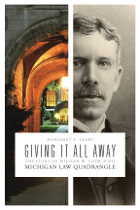
“Margaret Leary's carefully researched book illuminates a complex man who marked his university in a truly enduring way."
---Francis X. Blouin Jr., Director, Bentley Historical Library, and Professor, School of Information and Department of History, University of Michigan
“Generations of Michigan Law grads have passed on myths about their generous but eccentric benefactor. . . . Now Margaret Leary has given us the real story, and it reads like a gripping whodunit."
---Theodore J. St. Antoine, James E. and Sarah A. Degan Professor Emeritus of Law and Past Dean, University of Michigan Law School
“In an absorbing book, Margaret Leary unstintingly investigates unpublished, archival material to unravel enigmas surrounding William Wilson Cook. She brings to life Cook's brilliant interactions with powerful moguls of the early twentieth century as she traces his lofty, philanthropic mission to elevate the legal profession."
---Ilene H. Forsyth, Arthur F. Thurnau Professor of the History of Art, emerita, University of Michigan
William W. Cook, born in 1858 and a graduate of the University of Michigan and of its law school, made his fortune by investing in the burgeoning telegraph and communications industry, as well as in representing the Mackay Company in their frequent tumultuous battles with Western Union and the U.S. government. Though Cook entered New York society and never returned to Michigan after receiving his law degree, he decided not just to give his alma mater the finest physical facility of any existing law school, but to donate permanent resources that would permit the law school to engage in groundbreaking legal research. However, his generosity proved controversial and eventually very litigious. Margaret A. Leary places Cook's story in the rich social and cultural context of his time and paints a fascinating portrait of a complex figure whose legacy continues to shape the University of Michigan.
Cover photographs: (left) Gregory Fox Photography; (right) Ann B. Cook collection, photo by Russell R. Serbay
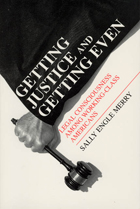
Getting Justice and Getting Even concerns the legal consciousness of working class Americans and their experiences with court and mediation. Following cases into and through the courts, Sally Engle Merry provides an ethnographic study of local law and of the people who use it in a New England city. The litigants, primarily white, native-born, and working class, go to court because as part of mainstream America they feel entitled to use its legal system. Although neither powerful nor highly educated, they expect the law's support when they face intolerable infringements of their rights, privacy, and safety. Yet as personal problems enter the legal system and move through mediation sessions, clerk's hearings, and prosecutor's conferences, the citizen plaintiff rapidly loses control of the process. Court officials and mediators interpret and characterize the meaning of these experiences, reframing and categorizing them in different discourses. Some plaintiffs yield to these interpretations, but others resist, struggling to assert their own version of the problem.
Ultimately, Merry exposes the paradox of legal entitlement. While going to court allows an individual to dominate domestic relationships, the litigant must increasingly yield control of the situation to the court that supplies that power.

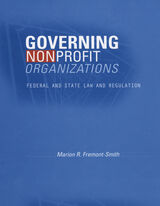
The nonprofit sector is a vital component of our society and is allowed the greatest freedom to operate. The public understandably assumes that since nonprofit organizations are established to do good, the people who run nonprofits are altruistic, and the laws governing nonprofits have reflected this assumption. But as Marion Fremont-Smith argues, the rules that govern how nonprofits operate are inadequate, and the regulatory mechanisms designed to enforce the rules need improvement.
Despite repeated instances of negligent management, self-interest at the expense of the charity, and outright fraud, nonprofits continue to receive minimal government regulation. In this time of increased demand for corporate accountability, the need to strengthen regulation of nonprofits is obvious. Fremont-Smith addresses this need from a historical, legal, and organizational perspective. She combines summaries and analysis of the substantive legal rules governing the behavior of charitable officers, directors, and trustees with descriptions of the federal and state regulatory schemes designed to enforce these rules. Her unique and exhaustive historical survey of the law of nonprofit organizations provides a foundation for her analysis of the effectiveness of current law and proposals for its improvement.

During the past thirty years, the American workplace has undergone fundamental changes in the composition of its workforce, its technology, its financial structure, and its competitive position. These social and economic transformations have been paralleled by equally profound changes in the legal framework of the employment relationship. The National Labor Relations Act has proved incapable of protecting the long-established right of employees to union representation against growing resistance by employers. And to fill the gap created by the decline of unions, the legislatures and courts have been busy creating and enforcing many new individual employee rights.
Governing the Workplace addresses this new world of work. Its main concern is with the question of who will represent the interests of workers in major decisions about their lives: how and when they will be hired, fired, and retired, and how they will be treated when they are on the job. The book examines in vivid detail many real-life problems, ranging from wrongful dismissal and mandatory drug testing to pay equity and occupational safety, to employee involvement on the shop floor and in the corporate boardroom. Should workers be represented by a lawyer in the courtroom, by a government official in charge of an administrative program, by the employer’s personnel manager, by the union leader engaged in collective bargaining with the employer, or by the employees themselves participating in a committee that exercises real influence inside the firm? After undertaking a systematic appraisal of each of these options, leading labor lawyer Paul Weiler develops a blueprint for the reconstruction of the law of the workplace, especially designed to give American workers more effective representation.

The contributors include the editors and Carl T. Bogus, Jennifer Carlson, Saul Cornell, Darrell A.H. Miller, Laura Beth Nielsen, and Katherine Shaw.
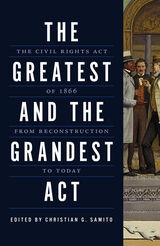
Essays examine the history and legal ramifications of the act and highlight competing impulses within it, including the often-neglected Section 9, which allows the president to use the nation’s military in its enforcement; an investigation of how the Thirteenth Amendment operated to overturn the Dred Scott case; and New England’s role in the passage of the act. The act is analyzed as it operated in several states such as Kentucky, Missouri, and South Carolina during Reconstruction. There is also a consideration of the act and its interpretation by the Supreme Court in its first decades. Other essays include a discussion of the act in terms of contract rights and in the context of the post–World War II civil rights era as well as an analysis of the act’s backward-looking and forward-looking nature.

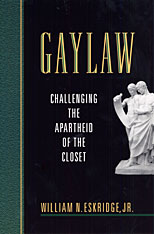
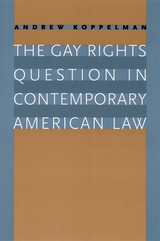
The Gay Rights Question in Contemporary American Law offers an unusually nuanced analysis of the most pressing gay rights issues. Does antigay discrimination violate the Constitution? Is there any sound moral objection to homosexual conduct? Are such objections the moral and constitutional equivalent of racism? Must state laws recognizing same-sex unions be given effect in other states? Should courts take account of popular resistance to gay equality? Koppelman sheds new light on all these questions. Sure to upset purists on either side of the debate, Koppelman's book criticizes the legal arguments advanced both for and against gay rights. Just as important, it places these arguments in broader moral and social contexts, offering original, pragmatic, and workable legal solutions.

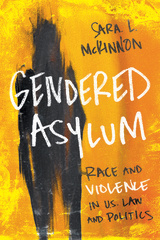
Sara L. McKinnon exposes racialized rhetorics of violence in politics and charts the development of gender as a category in American asylum law. Starting with the late 1980s, when gender-based requests first emerged in case law, McKinnon analyzes gender- and sexuality-related cases against the backdrop of national and transnational politics. Her focus falls on cases as diverse as Guatemalan and Salvadoran women sexually abused during the Dirty Wars and transgender asylum seekers from around the world fleeing brutally violent situations. She reviews the claims, evidence, testimony, and message strategies that unfolded in these legal arguments and decisions, and illuminates how legal decisions turned gender into a political construct vulnerable to American national and global interests. She also explores myriad related aspects of the process, including how subjects are racialized and the effects of that racialization, and the consequences of policies that position gender as a signifier for women via normative assumptions about sex and heterosexuality.
Wide-ranging and rich with human detail, Gendered Asylum uses feminist, immigration, and legal studies to engage one of the hotly debated issues of our time.

In this detailed study of one of the most controversial Supreme Court cases in modern times, Ilya Somin argues that Kelo was a grave error. Economic development and “blight” condemnations are unconstitutional under both originalist and most “living constitution” theories of legal interpretation. They also victimize the poor and the politically weak for the benefit of powerful interest groups and often destroy more economic value than they create. Kelo itself exemplifies these patterns. The residents targeted for condemnation lacked the influence needed to combat the formidable government and corporate interests arrayed against them. Moreover, the city’s poorly conceived development plan ultimately failed: the condemned land lies empty to this day, occupied only by feral cats. The Supreme Court’s unpopular ruling triggered an unprecedented political reaction, with forty-five states passing new laws intended to limit the use of eminent domain. But many of the new laws impose few or no genuine constraints on takings. The Kelo backlash led to significant progress, but not nearly as much as it may have seemed.
Despite its outcome, the closely divided 5-4 ruling shattered what many believed to be a consensus that virtually any condemnation qualifies as a public use under the Fifth Amendment. It also showed that there is widespread public opposition to eminent domain abuse. With controversy over takings sure to continue, The Grasping Hand offers the first book-length analysis of Kelo by a legal scholar, alongside a broader history of the dispute over public use and eminent domain and an evaluation of options for reform.

In this detailed study of one of the most controversial Supreme Court cases in modern times, Ilya Somin argues that Kelo was a grave error. Economic development and “blight” condemnations are unconstitutional under both originalist and most “living constitution” theories of legal interpretation. They also victimize the poor and the politically weak for the benefit of powerful interest groups and often destroy more economic value than they create. Kelo itself exemplifies these patterns. The residents targeted for condemnation lacked the influence needed to combat the formidable government and corporate interests arrayed against them. Moreover, the city’s poorly conceived development plan ultimately failed: the condemned land lies empty to this day, occupied only by feral cats. The Supreme Court’s unpopular ruling triggered an unprecedented political reaction, with forty-five states passing new laws intended to limit the use of eminent domain. But many of the new laws impose few or no genuine constraints on takings. The Kelo backlash led to significant progress, but not nearly as much as it may have seemed.
Despite its outcome, the closely divided 5-4 ruling shattered what many believed to be a consensus that virtually any condemnation qualifies as a public use under the Fifth Amendment. It also showed that there is widespread public opposition to eminent domain abuse. With controversy over takings sure to continue, The Grasping Hand offers the first book-length analysis of Kelo by a legal scholar, alongside a broader history of the dispute over public use and eminent domain and an evaluation of options for reform.

While reading what top legal reporters say about some of the most important U.S. Supreme Court oral arguments in recent history, go to www.goodquarrel.com to listen to audio and hear for yourself the very style and delivery of the oral arguments that have shaped the history of our nation's highest law. See Preface for full instructions.
Contributors
- Charles Bierbauer, CNN
- Lyle Denniston, scotusblog.com
- Fred Graham, Court TV
- Brent Kendall, Los Angeles Daily Journal
- Steve Lash, Houston Chronicle
- Dahlia Lithwick, Slate.com
- Tony Mauro, American Lawyer Media
- Tim O'Brien, ABC News
- David Savage, Los Angeles Times
- Greg Stohr, Bloomberg News
- Nina Totenberg, NPR
Timothy R. Johnson teaches in the Department of Political Science and the Law School at the University of Minnesota.
Jerry Goldman teaches political science at Northwestern University and directs the OYEZ Project, a multimedia archive devoted to the Supreme Court, at www.oyez.org.
Cover sketch by Dana Verkouteren
"Supreme Court oral arguments are good government in action. A Good Quarrel brilliantly showcases this important aspect of the Court's work."
---Paul Clement, Partner, King & Spalding, and former United States Solicitor General
"Few legal experiences are as exhilarating as a Supreme Court oral argument---a unique art form that this superb collection brings vividly to life."
---Kathleen Sullivan, Partner, Quinn Emanuel Urquhart Oliver and Hedges, and former Dean, Stanford Law School
"[A Good Quarrel] shines a brilliant spotlight on the pivotal moment of advocacy when the Supreme Court confronts the nation's most profound legal questions."
---Thomas C. Goldstein, Partner, Akin Gump, and Lecturer, Supreme Court Litigation, Harvard Law School and Stanford Law School
"A brilliant way to understand America's most important mysterious institution."
---Lawrence Lessig, Stanford Law School

This is rare and little-examined territory: in the public consciousness the Supreme Court is usually seen as an establishment whose main actors, the justices, remain above emotion, vitriol, and gossip, the better to interpret our nation of laws. Yet the Court's work is always an interchange of ideas and individuals, and the men and women who make up the Court, despite or because of their best intentions, are as human as the rest of us. Appreciating that human dimension helps us to discover some of the Court's secrets, and a new way to understand the Court and its role.
Comparing four brilliant but very different jurists of the Roosevelt Court-Hugo Black, William O. Douglas, Felix Frankfurter, and Robert Jackson-William Domnarski paints a startling picture of the often deeply ambiguous relationship between ideas and reality, between the law and the justices who interpret and create it. By pulling aside the veil of decorous tradition, Domnarski brings to light the personalities that shaped one of the greatest Courts of our time-one whose decisions continue to affect judicial thinking today.
William Domnarski is the author of In the Opinion of the Court (1996), a study of the history and nature of federal court judicial opinions. He holds a J.D. from the University of Connecticut and a Ph.D. in English from the University of California. Domnarski currently practices law in California, where he is also working on a forthcoming biography of legendary Hollywood lawyer Bert Fields.

Justice isn't blind. It's winking. This is the message Americans get when, against the weight of overwhelming evidence, high-profile suspects go free; when there are special sentencing rules for battered wives or adult survivors of childhood abuse; when murderers are released from prison to rape and murder again, and politicians make political hay out of these cases; when lawyers look less like servants of higher values and more like profit seekers reaping fortunes by helping clients get away with murder. This book is a penetrating look into what's wrong with the American legal system, a devastating critique of how politics has corrupted criminal law in America.
Written with clarity and simplicity, Getting Away with Murder is a lesson in how the law works and a blueprint for how it should work. Susan Estrich takes on the enflamed issues, from the O. J. Simpson trial to three strikes legislation, but pushes well beyond the soundbite answers. Drawing on her background as a lawyer, political commentator, professor, and national campaign manager for Michael Dukakis, she brings academic expertise and political experience together in a way that very few people can.
In particular, Estrich argues that group-based jury nullification, like group-based abuse excuses, is precisely the wrong answer to the biases of the criminal justice system. Getting Away with Murder also views this system in the wider political arena, where fiascoes like the Willie Horton case stifle political debate and promote policies that tie the hands of judges in dealing with dangerous offenders. Lawyers do not escape Estrich's notice; she directs some of her most pointed remarks at the failure of the legal profession to tend to the ethical duties and legal values that it professes.
At a time when three quarters of black Americans believe that the criminal justice system is racist and unfair; when nearly half of all whites think it's ineffective and in decline; when crime, though falling, still tops the list of public concerns, and politicians exploit public distrust of the system to get elected, Getting Away with Murder makes a statement that is powerful, controversial, and urgently needed.

In Guilty People, law professor and longtime criminal defense attorney Abbe Smith gives us a thoughtful and honest look at guilty individuals on trial. Each chapter tells compelling stories about real cases she handled; some of her clients were guilty of only petty crimes and misdemeanors, while others committed offenses as grave as rape and murder. In the process, she answers the question that every defense attorney is routinely asked: How can you represent these people?
Smith’s answer also tackles seldom-addressed but equally important questions such as: Who are the people filling our nation’s jails and prisons? Are they as dangerous and depraved as they are usually portrayed? How did they get caught up in the system? And what happens to them there?
This book challenges the assumption that the guilty are a separate species, unworthy of humane treatment. It is dedicated to guilty people—every single one of us.

"It takes only a few minutes with A Guide to [America's] Sex to realize that the nation's laws governing what two consenting adults can do with one another are an odd jumble."—Eric Fidler, San Diego Commerce
"Especially noteworthy is how laws governing various sexual activities vary from state to state."—Library Journal
"Fascinating and often surprising facts are concisely documented and conveniently organized in A Guide."—Carlin Meyer, New York Law Journal

John Hagedorn, who has long been an expert witness in gang-related court cases, claims that what transpires in the trials of gang members is a far cry from what we would consider justice. In Gangs on Trial, he recounts his decades of experience to show how stereotypes are used against gang members on trial and why that is harmful. Hagedorn uses real-life stories to explain how implicit bias often replaces evidence and how the demonization of gang members undermines fairness. Moreover, a “them and us” mentality leads to snap judgments that ignore the complexity of gang life in America.
Gangs on Trial dispels myths about gangs and recommends tactics for lawyers, mitigation specialists, and expert witnesses as well as offering insights for jurors. Hagedorn describes how minds are subconsciously “primed” when a defendant is identified as a gang member, and discusses the “backfire effect,” which occurs when jurors hear arguments that run counter to their beliefs. He also reveals how attributional errors, prejudice, and racism impact sentences of nonwhite defendants.
Hagedorn argues that dehumanization is the psychological foundation of mass incarceration. Gangs on Trial advocates for practical sentencing reforms and humanizing justice.

For Golden Rules, Mark Kanazawa draws on previously untapped historical sources to trace the emergence of the current framework for resolving water-rights issues to California in the 1850s, when Gold Rush miners flooded the newly formed state. The need to circumscribe water use on private property in support of broader societal objectives brought to light a number of fundamental issues about how water rights ought to be defined and enforced through a system of laws. Many of these issues reverberate in today’s contentious debates about the relative merits of government and market regulation. By understanding how these laws developed across California’s mining camps and common-law courts, we can also gain a better sense of the challenges associated with adopting new property-rights regimes in the twenty-first century.
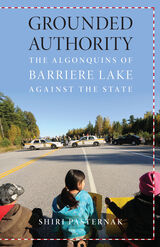
Western Political Science Association's Clay Morgan Award for Best Book in Environmental Political Theory
Canadian Studies Network Prize for the Best Book in Canadian Studies
Nominated for Best First Book Award at NAISA
Honorable Mention: Association for Political and Legal Anthropology Book Prize
Since Justin Trudeau’s election in 2015, Canada has been hailed internationally as embarking on a truly progressive, post-postcolonial era—including an improved relationship between the state and its Indigenous peoples. Shiri Pasternak corrects this misconception, showing that colonialism is very much alive in Canada. From the perspective of Indigenous law and jurisdiction, she tells the story of the Algonquins of Barriere Lake, in western Quebec, and their tireless resistance to federal land claims policy.
Grounded Authority chronicles the band’s ongoing attempts to restore full governance over its lands and natural resources through an agreement signed by settler governments almost three decades ago—an agreement the state refuses to fully implement. Pasternak argues that the state’s aversion to recognizing Algonquin jurisdiction stems from its goal of perfecting its sovereignty by replacing the inherent jurisdiction of Indigenous peoples with its own, delegated authority. From police brutality and fabricated sexual abuse cases to an intervention into and overthrow of a customary government, Pasternak provides a compelling, richly detailed account of rarely documented coercive mechanisms employed to force Indigenous communities into compliance with federal policy.
A rigorous account of the incredible struggle fought by the Algonquins to maintain responsibility over their territory, Grounded Authority provides a powerful alternative model to one nation’s land claims policy and a vital contribution to current debates in the study of colonialism and Indigenous peoples in North America and globally.

"Gardens and Neighbors will provide an important building block in the growing body of literature on the ways that Roman law, Roman society, and the economic concerns of the Romans jointly functioned in the real world."
---Michael Peachin, New York University
As is increasingly true today, fresh water in ancient Italy was a limited resource, made all the more precious by the Roman world's reliance on agriculture as its primary source of wealth. From estate to estate, the availability of water varied, in many cases forcing farmers in need of access to resort to the law. In Gardens and Neighbors: Private Water Rights in Roman Italy, Cynthia Bannon explores the uses of the law in controlling local water supplies. She investigates numerous issues critical to rural communities and the Roman economy. Her examination of the relationship between farmers and the land helps draw out an understanding of Roman attitudes toward the exploitation and conservation of natural resources and builds an understanding of law in daily Roman life.
An editor of the series Law and Society in the Ancient World, Cynthia Jordan Bannon is also Associate Professor of Classical Studies at Indiana University, Bloomington. Her previous book was The Brothers of Romulus: Fraternal Pietas in Roman Law, Literature, and Society (1997). Visit the author's website: http://www.iub.edu/~classics/faculty/bannon.shtml.
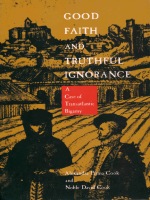
So begins the labyrinthine legal tale and engrossing drama of an explorer and his two wives, skillfully reconstructed through the expert and original archival research of Alexandra Parma Cook and Noble David Cook. Drawing on the remarkable records from the trial, the narrative of Francisco’s adventures provides a window into daily life in sixteenth-century Spain, as well as the mentalité and experience of conquest and settlement of the New World. Told from the point of view of the conquerors, Francisco’s story reveals not only the lives of the middle class and minor nobility but also much about those at the lower rungs of the social order and relations between the sexes.
In the tradition of Carlo Ginzberg’s The Cheese and the Worms and Natalie Zemon Davis’ The Return of Martin Guerre, Good Faith and Truthful Ignorance illuminates an historical period—the world of sixteenth-century Spain and Peru—through the wonderful and unusual story of one man and his two wives.

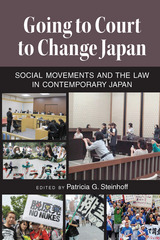

Challenging prevailing media stereotypes, Generation at the Crossroads explores the beliefs and choices of the students who came of age in the 1980s and 1990s. For seven years, at over a hundred campuses in thirty states, Paul Loeb asked students about the values they held. He examines their concepts of responsibility, the links they draw between present and future, and how they view themselves in relation to the larger human community in which they live. He brings us a range of voices, from "I'm not that kind of person," to "I had to take a stand." Loeb looks at how the rest of us can serve young people as better role models, and give them courage and vision to help build a better world.
This insightful book explores the culture of withdrawal that dominated American campuses through most of the eighties. He locates its roots in historical ignorance, relentless individualism, mistrust of social movements, and a general isolation from urgent realities. He examines why a steadily increasing minority has begun to take on critical public issues, whether environmental activism, apartheid, hunger and homelessness, affordable education, or racial and sexual equity. Loeb looks at individuals who have overcome precisely the barriers he has described, and how their journeys can become models. The generational choices he explores will shape our common future.

Drawing on personal experience, extensive research, and public school representations in poetry, school slang, spy films, popular novels, and rock music, Brooke-Smith offers a fresh account of upper-class adolescence in Britain and the role of elite private education in shaping youth culture. He shows how this central British institution has inspired a counterculture of artists, intellectuals, and radicals—from Percy Shelley and George Orwell to Peter Gabriel and Richard Branson—who have rebelled against both the schools themselves and the wider society for which they stand. Written with verve and humor in the tradition of Owen Jones’s The Establishment: And How They Get Away With It, this highly original cultural history is an eye-opening leap over the hallowed iron gates of privilege—and perturbation.

Displaying a stunning grasp of the financial and policy details, Andrew McGettigan surveys the emerging brave new world of higher education. He looks at the big questions: What will be the role of universities within society? How will they be funded? What kind of experiences will they offer students? Where does the public interest lie?
Written in a clear and accessible style, The Great University Gamble outlines the architecture of the new policy regime and tracks the developments on the ground. It is an urgent warning that our universities and colleges are now open to commercial pressures, which threaten to transform education from a public good into a private, individual financial investment.
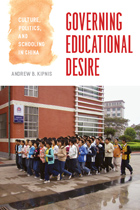
Parents in China greatly value higher education for their children, but the intensity and effects of their desire to achieve this goal have largely gone unexamined—until now. Governing Educational Desire explores the cultural, political, and economic origins of Chinese desire for a college education as well as its vast consequences, which include household and national economic priorities, birthrates, ethnic relations, and patterns of governance.
Where does this desire come from? Andrew B. Kipnis approaches this question in four different ways. First, he investigates the role of local context by focusing on family and community dynamics in one Chinese county, Zouping. Then, he widens his scope to examine the provincial and national governmental policies that affect educational desire. Next, he explores how contemporary governing practices were shaped by the Confucian examination system, uncovering the historical forces at work in the present. Finally, he looks for the universal in the local, considering the ways aspects of educational desire in Zouping spread throughout China and beyond. In doing so, Kipnis provides not only an illuminating analysis of education in China but also a thought-provoking reflection on what educational desire can tell us about the relationship between culture and government.

Once again Vivian Paley takes us into the inquiring minds and the dramatic worlds of young children learning in the kindergarten classroom.
As she enters her final year of teaching, Paley tells in this book a story of farewell and a story of self-discovery—through the thoughts and blossoming spirit of Reeny, a little girl with a fondness for the color brown and an astonishing sense of herself. "This brown girl dancing is me," Reeny announces, as her crayoned figures flit across the classroom walls. Soon enough we are drawn into Reeny's remarkable dance of self-revelation and celebration, and into the literary turn it takes when Reeny discovers a kindred spirit in Leo Lionni—a writer of books and a teller of tales. Led by Reeny, Paley takes us on a tour through the landscape of characters created by Lionni. These characters come to dominate a whole year of discussion and debate, as the children argue the virtues and weaknesses of Lionni's creations and his themes of self-definition and an individual's place in the community.
The Girl with the Brown Crayon tells a simple personal story of a teacher and a child, interweaving the themes of race, identity, gender, and the essential human needs to create and to belong. With characteristic charm and wonder, Paley discovers how the unexplored territory unfolding before her and Reeny comes to mark the very essence of school, a common core of reference, something to ponder deeply and expand on extravagantly.

When he was five and a half years old, Paul Bissex wrote and posted this sign over his workbench: DO NAT DSTRB GNYS AT WRK. The “work” from which this “genius” refused to be “disturbed” was the work typical of all children, namely, the task of learning how to write and read. In Gnys at Wrk, Glenda Bissex goes far beyond the chronicle of her son’s accomplishment to provide the first in-depth case study of a child’s confrontation with written language, rich in revelations about the nature and processes of the mind.
Paul begins by writing notes in a system of his own invention—like IEAVGAWNTOOTHESTOR for “I have gone to the store”—and this system becomes more elaborate as he goes on to create stories, games and signs. Eventually, the system merges with conventional written English as Paul learns to separate words and to associate letters not with their names but with sets of possible sounds.
Glenda Bissex shows how the evolution of Paul’s writing ability is closely intertwined with his reading development—in Paul’s own words, “once you can write a word you can read it.“ She also makes an intriguing comparison between Paul’s schoolwork and his endeavors at home, and explores the influence of his personal interests and world view on his facility with words. Her study is a unique, detailed account of the “genius” that is, quite simply, the human capacity for language.
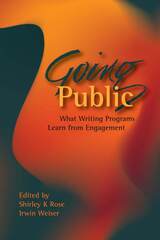
In Going Public, Rose and Weiser locate their discussion in the context of three current conversations in higher education: 1) the engagement movement, particularly as this movement serves to address and respond to calls for greater accountability to broader publics; 2) recent interest in public discourse/civic rhetoric among scholars of rhetorical history and contemporary rhetorical theory; 3) the service learning movement in higher education, especially the ways in which college and university writing programs have contributed to this movement.
While there have been a number of publications describing service-learning and community leadership programs, most of these focus on curricular elements and address administrative issues, if at all, primarily from a curricular perspective. The emphasis of the current book is on the ways that engagement-focused programs change conceptions of WPA identity. Going Public, then, is not only a significant contribution to the scholarly literature, but also supplies an important new resource for WPA preparation courses in rhetoric and composition PhD programs.

Geeky Pedagogy is a funny, evidence-based, multidisciplinary, pragmatic, highly readable guide to the process of learning and relearning how to be an effective college teacher. It is the first college teaching guide that encourages faculty to embrace their inner nerd, inviting readers to view themselves and their teaching work in light of contemporary discourse that celebrates increasingly diverse geek culture and explores stereotypes about super-smart introverts.
Geeky Pedagogy avoids the excessive jargon, humorlessness, and endless proscriptions that plague much published advice about teaching. Neuhaus is aware of how embodied identity and employment status shape one’s teaching context, and she eschews formulaic depictions of idealized exemplar teaching, instead inviting readers to join her in an engaging, critically reflective conversation about the vicissitudes of teaching and learning in higher education as a geek, introvert, or nerd. Written for the wonks and eggheads who want to translate their vast scholarly expertise into authentic student learning, Geeky Pedagogy is packed with practical advice and encouragement for increasing readers’ pedagogical knowledge.
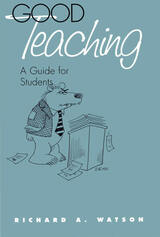
From junior college to Ivy League university, the level of teaching ranges from "great to awful," according to Richard A. Watson, who explains not only how to survive but how to profit from and enjoy your college experience.
To help students make important personal choices—what school? what major? what classes?—Watson explains such broad areas as administrative structure, institutional goals, and faculty aspirations.
Charging the student with the ultimate responsibility for learning, Watson presents certain academic facts of life: teaching is not the primary concern of either the faculty or the administration in most institutions; few professors on the university level have had any training in teaching, and even fewer started out with teaching as their goal; senior professors do not teach much (the higher the rank and salary, the less time in the classroom), and those seeking tenure must emphasize research to survive; and almost certainly, the bad teacher who is a good researcher will get paid more than the good teacher who does not publish.
This is a book about good teaching and how to find it. Rejecting the conventional wisdom that a professor devoted to research will not be effective in the classroom, Watson advises that you take classes from the professor you may have been cautioned to avoid.

At twenty-three, Michelle Ephraim was failing at everything. The only child of reclusive Holocaust-survivor parents who were dismayed by her literary studies, she found herself dumped by her boyfriend and bombing out of graduate school. Then, one night, she crashed a Shakespeare recitation party. Loopy from vodka and never having read a single line of Shakespeare, she was transfixed. Shakespeare, she decided, was the lifeline she needed.
Green World is the hilarious and heartbreaking story of Ephraim’s quest to become a Shakespeare scholar and to find community and home. As she studies Shakespeare, Ephraim’s world uncannily begins to mirror the story of the Jewish daughter in The Merchant of Venice, and she finds herself in a Green World, an idyllic place where Shakespeare’s heroines escape their family trauma. Green World reckons with global, historical, and personal tragedy and shows how literature—comic and tragic—can help us brave every kind of anguish.
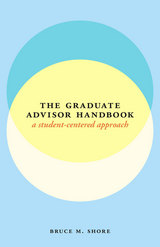
One of the first books to approach advising from the advisor’s point of view, the handbook highlights the importance of a partnership in which both parties need to be invested. Shore emphasizes the interpersonal relationships at the heart of advising and reveals how advisors can draw on their own strengths to create a rewarding rapport.
The Graduate Advisor Handbook moves chronologically through the advising process, from the first knock on the door to the last reference letter. Along the way it covers transparent communication, effective motivation, and cooperative troubleshooting. Its clear-eyed approach also tackles touchy subjects, including what to do when personal boundaries are crossed and how to deliver difficult news. Sample scripts help advisors find the right words for even the toughest situations.
With resources dwindling and student and advising loads increasing, graduate advisors need all the resources they can find to give their students the help they need. The Graduate Advisor Handbook has the cool-headed advice and comprehensive coverage that advisors need to make the advising relationship not just effective but also enjoyable.
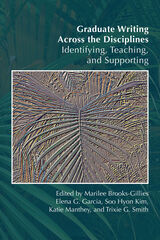

Genre and Graduate-Level Research Writing is grounded in genre-based theory and full of best practices examples. The book opens by presenting the case for the use of genre in graduate-level research writing and by examining rhetorical consciousness-raising and its ties to genre. Unique to the volume is a thorough analysis of the materials designed to teach genre and research writing—focused on the textbooks of Swales & Feak (e.g., Academic Writing for Graduate Students) and similar texts. Other chapters provide examples of discovery-based genre tasks, evaluative methods for assessing discipline-specific writing, and techniques for becoming a more confident instructor of graduate-level research writing.

It is no secret that American graduate education is in disarray. Graduate students take too long to complete their studies and face a dismal academic job market if they succeed. The Graduate School Mess gets to the root of these problems and offers concrete solutions for revitalizing graduate education in the humanities. Leonard Cassuto, professor and graduate education columnist for The Chronicle of Higher Education, argues that universities’ heavy emphasis on research comes at the expense of teaching. But teaching is where reforming graduate school must begin.
Cassuto says that graduate education must recover its mission of public service. Professors should revamp the graduate curriculum and broaden its narrow definition of success to allow students to create more fulfilling lives for themselves both inside and outside the academy. Cassuto frames the current situation foremost as a teaching problem: professors rarely prepare graduate students for the demands of the working worlds they will actually join. He gives practical advice about how faculty can teach and advise graduate students by committing to a student-centered approach.
In chapters that follow the career of the graduate student from admissions to the dissertation and placement, Cassuto considers how each stage of graduate education is shaped by unexamined assumptions and ancient prejudices that need to be critically confronted. Written with verve and infused with history, The Graduate School Mess returns our national conversation about graduate study in the humanities to first principles.
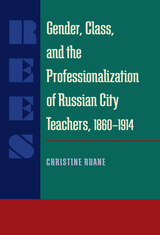
Ruane's research and insightful analysis broadens our knowledge of an emerging professional class, especially newly educated and emancipated women, during Russia's transition to a more modern society.

Cheerleading has become a staple in American culture. The cheerleader straddles two contradictory symbolic poles. This individual is an instantly recognized figure representing youthful attractiveness, leadership, and popularity. Yet, for many, the cheerleader is seen as epitomizing mindless enthusiasm, shallow boosterism, and objectified sexuality. This contradictory view is explored in this extensively documented book.
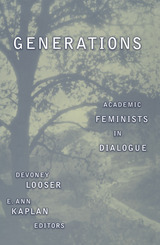
Explores the conflicts and challenges facing older and younger feminist scholars.
In universities and colleges across the country, feminists are debating their histories and future legacies, often expressing these controversies in generational terms. Some older, second wave feminists accuse younger ones of being careerist, overly theoretical, insufficiently political, and not grateful enough to previous generations. Some third wave feminists consider their foremothers naive, universalizing, or elitist, resentful of deviations from their established plans and improperly wielding their power. Generations addresses these divisions and impasses through sophisticated analyses of the challenges of “passing the torch.”
Generations is composed of essays from academic women at various professional stages-from established scholars to junior professors to graduate students. Some are concerned with telling intergenerational feminist histories based on both research and experience. Others describe difficulties faced by feminists of all ages in the academy today. A final cluster considers issues in the highly charged convergence of feminist theory and postmodernism. The promise of feminisms yet to come can be found in these pages, alongside some of the most resonant and important feminist voices of the last two decades. Generations both complicates and enlivens the transmission and rebirth of feminist knowledges from one generation to another. Contributors: Diane Elam, U of Wales; Elizabeth Francis, Brown U; Linda Frost, U of Alabama; Jane Gallop, U of Wisconsin; Dana Heller, Old Dominion U; Jane Kalbfleisch; Jeanne Marecek, Swarthmore College; Nancy K. Miller, CUNY; Mona Narain, Otterbein College; Angela M. S. Nelson, Bowling Green State U; Judith Newton, U of California, Davis; Rebecca Dakin Quinn; Gita Rajan, Fairfield U; Judith Roof, Indiana U; Theresa Ann Sears, U of Missouri at St. Louis; Ruthe Thompson; Michele Wallace, CUNY; Barbara A. White, U of New Hampshire; Lynda Zwinger, U of Arizona.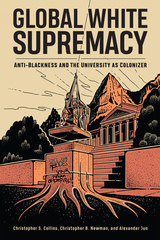
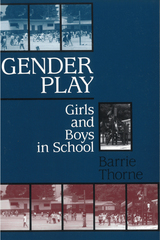
Thorne observes children in schools in working-class communities, emphasizing the experiences of fourth and fifth graders. Most of the children she observed were white, but a sizable minority were Latino, Chicano, or African American. Thorne argues that the organization and meaning of gender are influenced by age, ethnicity, race, sexuality, and social class, and that they shift with social context. She sees gender identity not through the lens of individual socialization or difference, but rather as a social process involving groups of children. Thorne takes us on a fascinating journey of discovery, provides new insights about children, and offers teachers practical suggestions for increasing cooperative mixed-gender interaction.
READERS
Browse our collection.
PUBLISHERS
See BiblioVault's publisher services.
STUDENT SERVICES
Files for college accessibility offices.
UChicago Accessibility Resources
home | accessibility | search | about | contact us
BiblioVault ® 2001 - 2024
The University of Chicago Press









